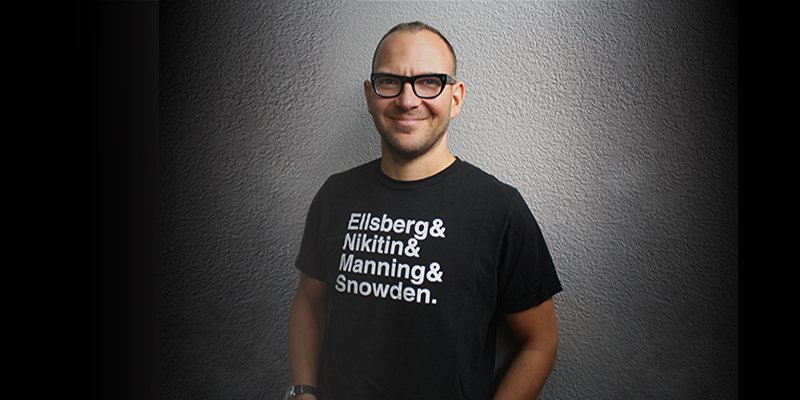Cory Doctorow: IP

my notes ( ? )
First a definition of (the importance of) "Interoperability – the thing Facebook uses to slurp stuff in from the open web – is the key to self-determination." Without it:
- you're trapped: "leaving Facebook means leaving your communities, your relationships... your presence on Facebook is the reason someone else can’t go...
- you're stuck with sub-optimal services: "Google could improve its retention by making you so delighted with its offerings ... but a surer, cheaper way is ... making sure that your kid can’t go to a public school without creating a Google account; embedding Google search in your mobile OS... Without interoperability, your choice is “take it or leave it”.
Hence the tangle of anti-interoperability rules - aka “intellectual property”, not an honest term as they are "very different legal regimes....:
- "US copyrights exist to ... provide an incentive to the creation of new works of art ... only protects “expressions of ideas”" - not ideas per se
- "Patents exist as incentive for inventors to reveal the workings of their inventions". While this protects them from being copied during the patent period, others "can study your patent filings and use them to figure out ... how to make an interoperable add-on"
- "Trademarks exist as consumer protection... deputizing Coca-Cola to punish crooks who trick Coke drinkers into buying knockoffs"
But "IP" has become "any law that I can invoke that allows me to control the conduct of my competitors, critics, and customers.” For example: when you bypass "DRM to get your printer to accept third-party ink ... you’re not reproducing its code... [or] duplicating ... its chips... [and] you’re not breaking copyright when you jailbreak your phone ... [but] you’re still breaking copyright law. The law bans legal conduct... This isn’t copyright protection – it’s felony contempt of business-model."
This despite the fact that these laws have clauses to ensure they're not abused:
- Copyright: “fair use allows for many kinds of copying, adapting, ... others’ copyrighted expressions, provided [you] ... promote a free and robust discourse by transforming, commenting on, or analyzing the copyrighted work"
- Patents are published
- Trademark: "holders are limited to enforcing their marks against rivals who use them in deceptive ways ... [and] is subject to the “nominative defense”
These clauses, however, require competition in the market: rivals preventing a company from abusing IP law. Decades of consolidation and lobbying have resulted in "what trademark permits, copyright prohibits, and what copyright permits, patent blocks".
Interestingly, what we now call “IP” used to be called “author’s monopolies.”, and the author of an article does have a monopoly: "a market for a product with only one seller. Author’s monopolies, however, are not “market power monopolies” - someone with enough market power to set prices. But entertainment industry monopolies "can aggregate enough “author’s monopolies” in one place... creating a market power monopoly backed by the power of the courts".
Software has eaten the world. It's everywhere. And with it, "IP... software deployed to control the conduct of competitors, critics, and customers", embedded everywhere, programmed to be "unblinking, ever-vigilant enforcers for the manufacturer/monopolist’s interests... control beyond the wildest dreams of history’s most sociopathic monopolist".
Read the Full Post
The above notes were curated from the full post locusmag.com/2020/09/cory-doctorow-ip/.Related reading
More Stuff I Like
More Stuff tagged monopoly , ipr , software , interoperability , facebook , innovation , google , cory doctorow
See also: Online Strategy , Social Media Strategy , Digital Transformation , Innovation Strategy , Social Web , Business